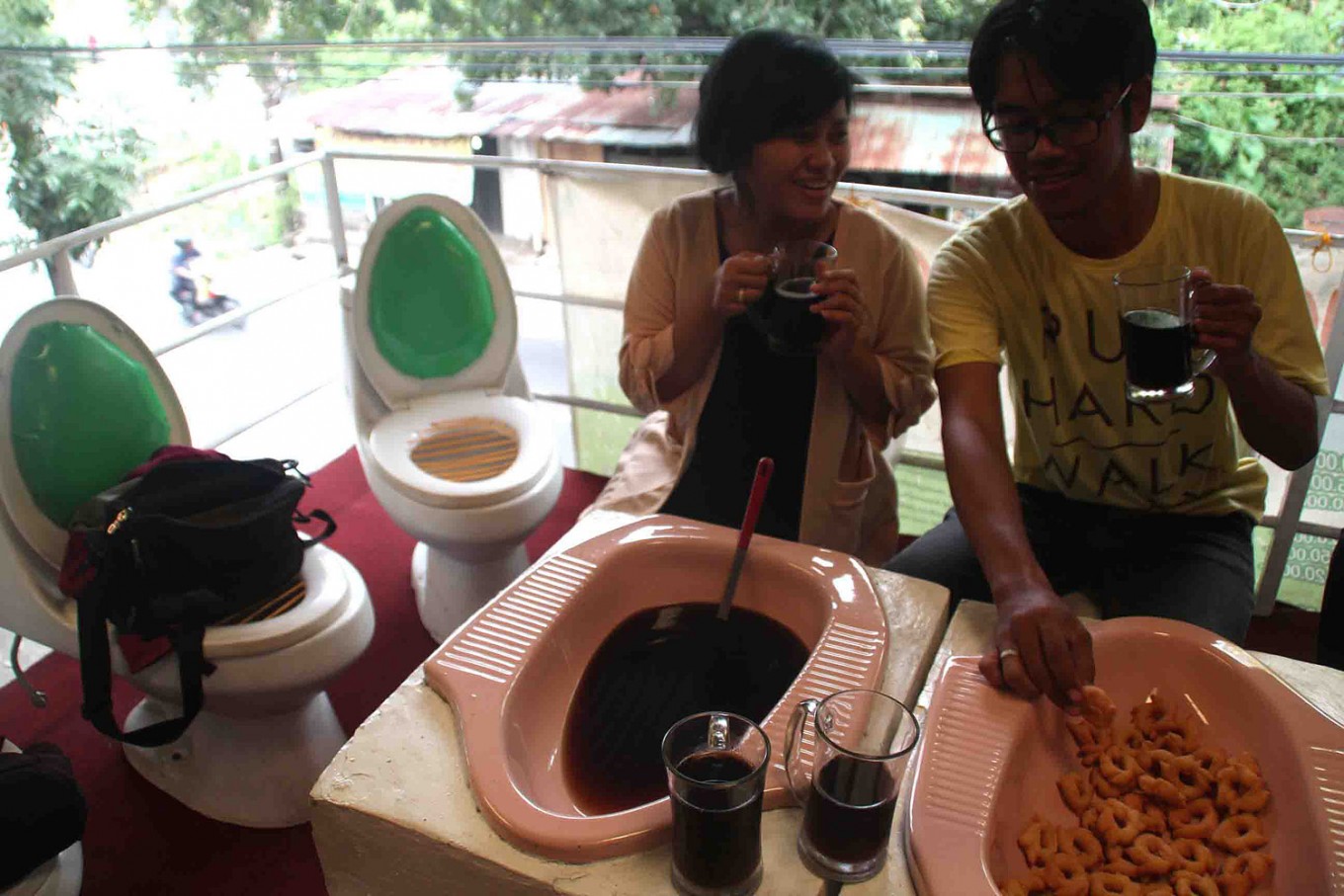Popular Reads
Top Results
Can't find what you're looking for?
View all search resultsPopular Reads
Top Results
Can't find what you're looking for?
View all search resultsToilet Café – a creative start to a sanitary lifestyle
Change text size
Gift Premium Articles
to Anyone
 Unique experience – Visitors enjoy food and drinks served in squat-toilet-like utensils at the Jamban Café in Semarang, Central Java. (thejakartapost.com/Suherdjoko)
Unique experience – Visitors enjoy food and drinks served in squat-toilet-like utensils at the Jamban Café in Semarang, Central Java. (thejakartapost.com/Suherdjoko)
Y
ou might be surprised to see a large banner emblazoned with the words “Cafe Jamban” in front of a shophouse on Jl. Untung Suropati 445 in Semarang, Central Java. What is the relation between a café and a jamban (toilet)?
I got the answer to this question when I stopped by the café recently. At this café, all food and beverages are served in a utensil closely resembling a squat toilet. The eight chairs for visitors to the café are also designed to look like squat toilets.
Toilet Café is the daring brainchild of Budi Laksono, 53, a physician specializing in reproductive health. He said he became aware of the importance of toilets for people’s health when he was a senior high school student. His awareness grew stronger as he pursued further study at the University of Diponegoro’s School of Medicine in 1982.
“With Jamban Café I just want to encourage people to become aware of the importance of a healthy lifestyle,” Budi said.
“I was inspired to build this café when I visited South Korea in 2013. I saw a toilet museum [Sanitation Museum], in a building that looked like a closet. The main message in the creation of such a museum is to encourage people to live a healthy lifestyle,” he went on.
Budi further explained that in Indonesia, 94 million people still carried out open defecation, which meant that around 38 percent of population did not have toilets.
“In 2013-2014, I made 3,500 toilets ordered by the Military Area Command IV/Diponegoro in Semarang, Central Java. Three months ago, I opened the Jamban Café, which aims to highlight the importance of a toilet. I want to encourage people to learn about healthy living,” said Budi.
At first, his idea drew strong criticism from the people. “Some of them accused me of being an infidel, saying my café was najis [dirty]. It took time and patience to introduce this cafe to the people,” he said.
Budi said a toilet was very important, but many Indonesians still considered it the least important compared to other parts of their houses. “Usually, the toilet is the last part of a house people will build,” he said.
With the Jamban Café, Budi said, he wanted to encourage his students and society at large to learn more about proper sanitation. (ebf)









